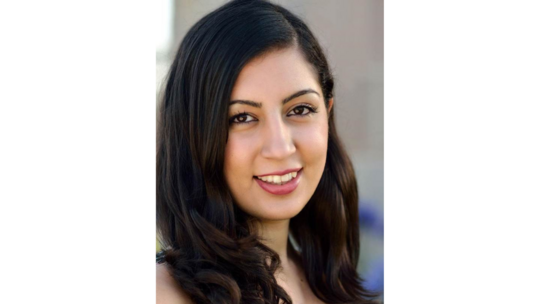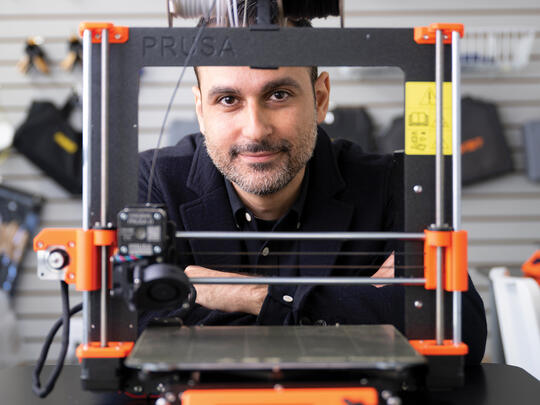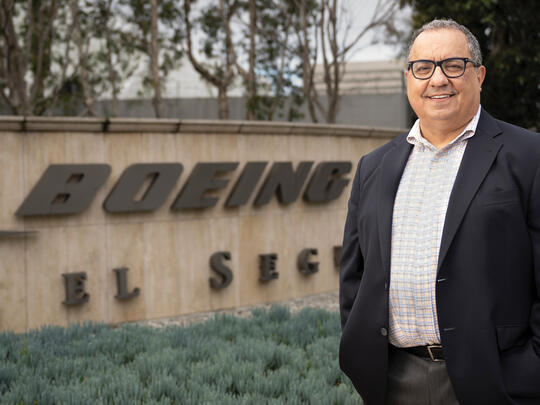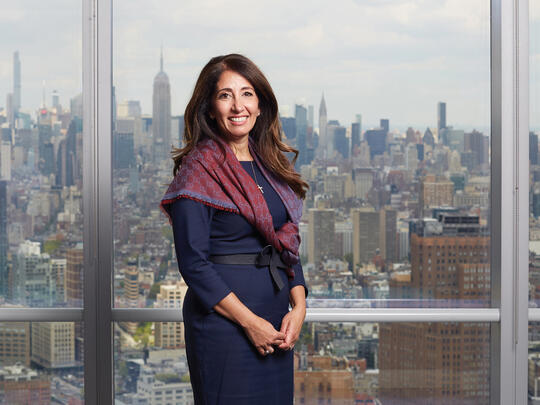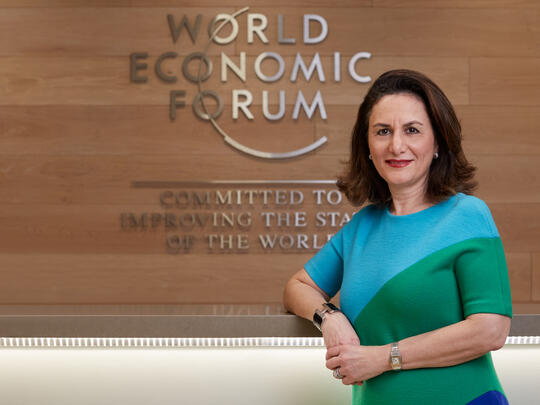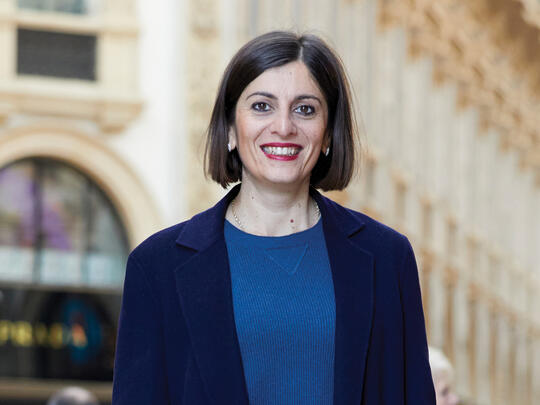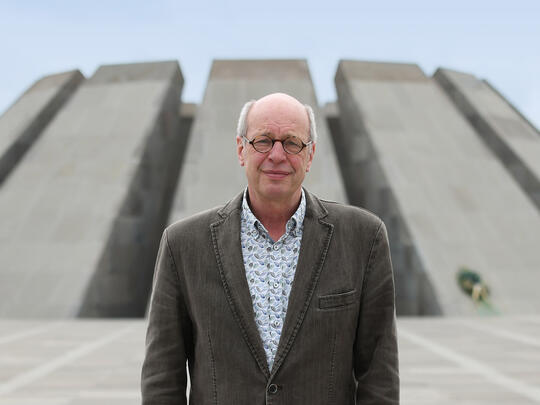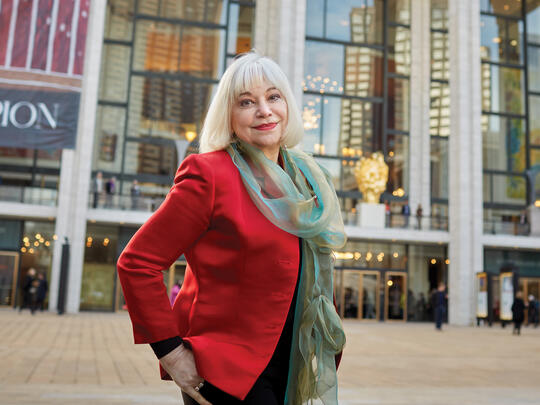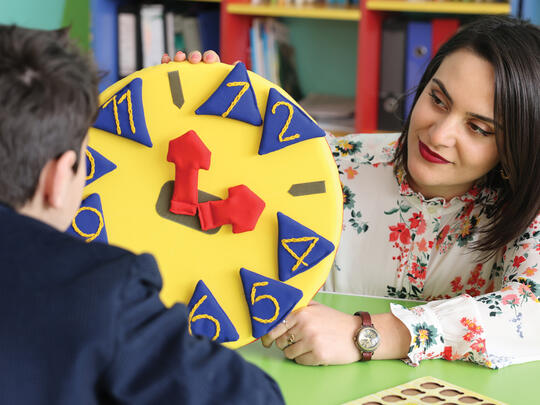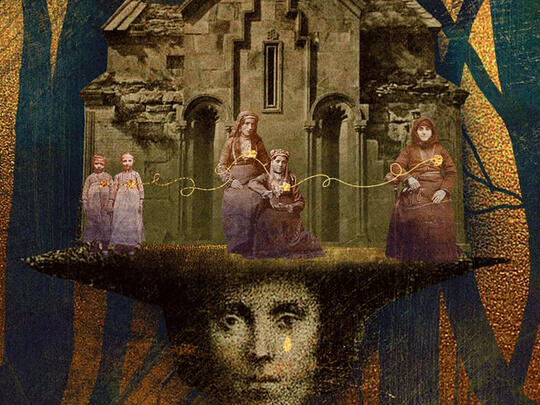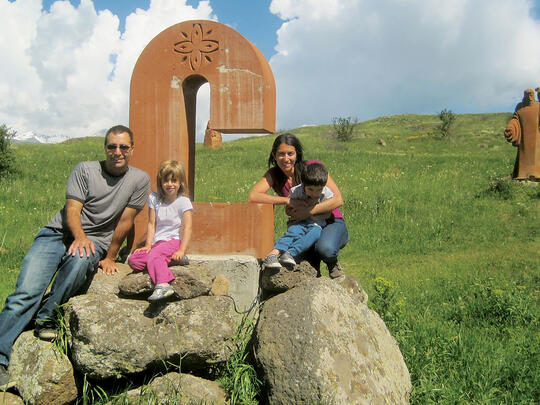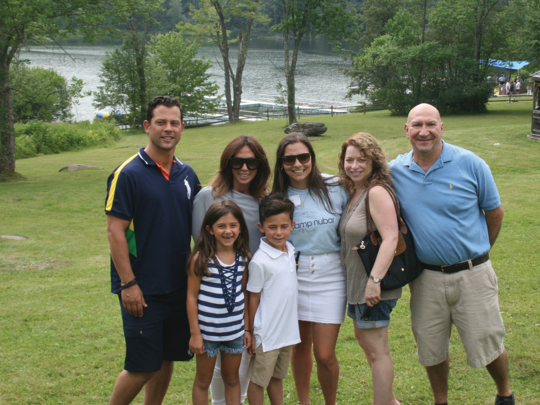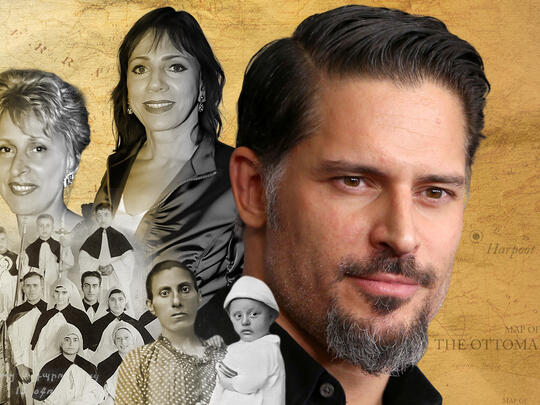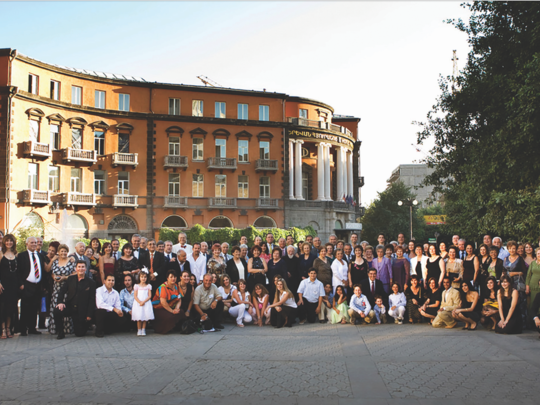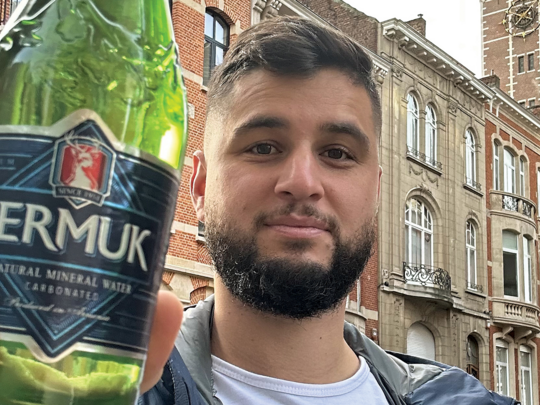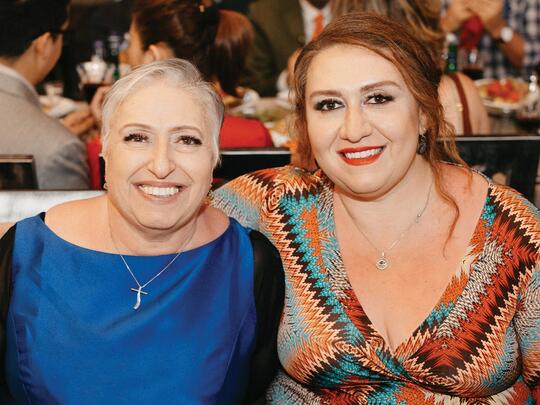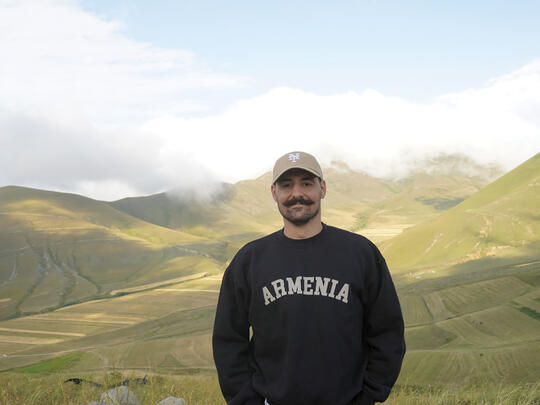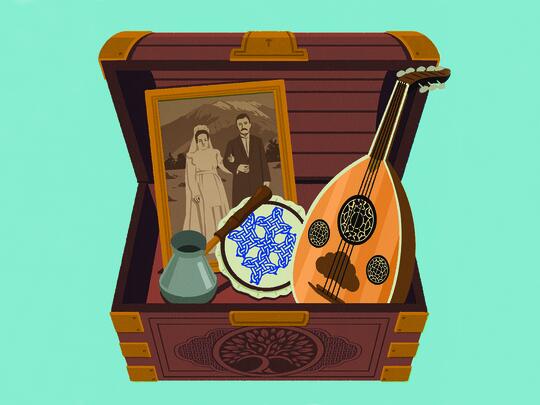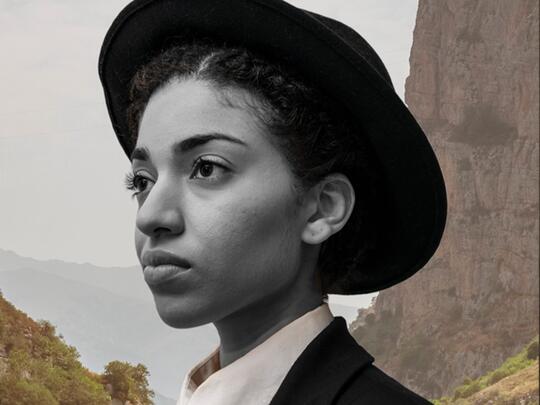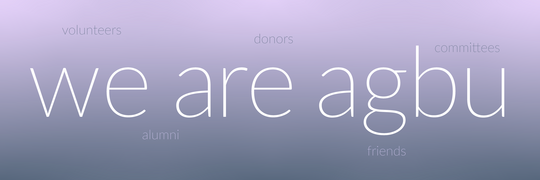
New Roads for Connection
Nanor Balabanian
My ultimate goal is to empower and connect Armenians. I want to encourage American Armenians to discover the many opportunities around them that can enable them to do something. Most often, I find that when we look outside ourselves and give back, we actually gain much more than we give.
Born in Syria, raised in Anjar, Lebanon, and currently living in California, Nanor Balabanian often finds herself lost between the different places she calls “home.” Since her move to the United States in 2005, Balabanian has been passionate about connecting Armenians from around the world, both physically and virtually. During the summer of 2009, Balabanian participated in YSIP (now the Global Leadership Program) and interned at the United Nations Development Office in Armenia - an experience that shaped the rest of her academic and professional career. Motivated by her YSIP colleagues and their drive to serve Armenia, she applied to the Donald A. Strauss Foundation that granted her $10,000 to implement a public service project to bring Internet and computer labs to the rural village of Akhpradzor, Armenia (south of Lake Yerevan).
Balabanian has since founded the Hidden Road Initiative, a student-led organization that brings together Armenian students to run service projects in Armenia. In 2012, her team was invited to attend the Clinton Global Initiative, founded and hosted by former President Bill Clinton, to present and network with global student leaders. Balabanian holds a B.A. in Political Science from the University of California Santa Barbara (UCSB) and a Masters in Education and Teaching Credential in Social Studies from Stanford University. She speaks Armenian, Arabic, English and French, and loves Armenian folk dancing, as well as Armenian theater. She is currently a world history teacher in Redwood City, California.
What originally led you to start up the Hidden Road Initiative (HRI) while you were still an undergraduate at UCSB? And what hurdles did you face while creating the organization as a student?
“Armenian? What’s that? Do you guys even have a country anymore?” These were the words that I first heard when I moved to my new American high school in 2005. Coming from Anjar, a village where 100% of the citizens were Armenian to a country where most people did not know of Armenia, Armenians, or the Armenian Genocide, I was in complete shock. However, this initial shock only helped to strengthen my Armenian identity, drove me to love my heritage, and motivated me to find other young Armenians who felt the same way.
My dream to connect Armenians came true when I got to UCSB and found a group of dedicated and driven students. Attending Armenian Student Association (ASA) meetings Armenian dance practices, I was amazed at the passion and dedication of Armenian youth. What was missing was our link to Armenia. YSIP was that link for me, the link that helped connect me to Armenia. That summer, I got to visit one of the world’s most isolated villages. The village’s main difficulty was the lack of roads - a road to take them to the doctor, a road to connect them to the capital to sell their crops, a road to the university. While rebuilding the road itself would have been unimaginable and unsustainable for us at the time, my YSIP colleagues and I brainstormed the idea of creating a “virtual road.” That is when I founded HRI.
My goal was to connect the road and bridge issues between students in the Armenian village of Akhpradzor and the rest of the world through the Internet and summer service camps. Through the use of communication technologies, we aim to maintain a constant connection with the isolated students, assess the needs of the village school, fundraise for school development projects and humanitarian needs, provide for the costs of running the school’s computer lab and summer educational programs. Through our summer programs, we hope to empower the students by introducing them to the technological skills of the 21st century and connecting them to peers from around the world. Two years have passed and the students have been using the computers for word processing, conducting research, writing emails, Skyping with family abroad, and printing official documents for the village. Many of them have now gone to university and are able to use computers to type their papers and conduct research.
What advice do you have for individuals who want to start up and build their own company or pursue a mission like HRI? What have you learned about conquering failure and adversity?
First, start with an idea. Then find a close, trusted group of dedicated team members with whom you can build and live out the idea. It’s also extremely important to set measurable and realistic goals, measure and assess your success and failure, learn and re-do. Be open to making mistakes and through them improve and create new strategies. Failure is both depressing and rewarding. The key is maintaining a growth mindset. When you look at failure as an opportunity to learn and grow, your chances of success increase exponentially.
You are also pursuing a career in teaching. What is it that you want your students to learn and gain from you?
Every time I visit Lebanon or Armenia, I am amazed at the differences in our lifestyles, values and cultures. Even though I grew up in Lebanon, I have become accustomed to the American lifestyle and the American ways of living. In my opinion, when you leave the country to go back to your “roots,” your identity strengthens and you start looking at life from a different perspective. Connecting with people outside of your bubble has the power to shape and change the meaning of your life. I want to encourage my students to go on service trips, to study abroad, and to live with people abroad. I also want them to know that it’s not about “us” versus “them.” Yes, we have many differences, but when we go on service projects with the mentality that we “need to help them,” that project will not work. Armenia does not need our help. Armenians need one another. We need to develop relationships because it is only through unions and relationships that we can unify and protect our heritage and strengthen our country.
Name a role model who has had an impact on your life and the decisions you have made.
One of my role models has been an Armenian American physicist named Anahid Yeremian. Anahid moved from Armenia to the United States as a teenager. Upon arriving, she worked extremely hard in school and persevered through various cultural and academic challenges. She is now one of the very few female physicists at the Stanford Linear Accelerator Center. More importantly, she is one of the very few Armenian women physicists working in one of the world’s most innovative centers.
It is not just Anahid’s drive that motivates me, but her zeal to bring Armenian youth together, as well. For years, Anahid has been the “mother” of Stanford’s Armenian Students Association (ASA). She is present at every meeting, participates in community events, and supports several ongoing projects. In fact, she influenced a team of Stanford ASA students to start the Act for Armenia organization, which funds six border villages in Armenia.
Most importantly, Anahid was the person who opened the door for me to Armenia. In 2009, she saw my passion for Armenia and decided to fund my trip to YSIP with the agreement that one day I would lead a project of my own. At the time, her request seemed impossible to me. Now, it is a reality. Not only did Anahid support me from the moment I arrived to the United States, but she also empowered me to start HRI. I am forever grateful for her mentorship and inspiration.
Her guidance also taught me the importance of having someone believe in you. I started HRI because Anahid had faith in me. I have deep respect for those Armenians who encourage and empower younger students to lead projects and make a difference. Because of Anahid’s encouragement, I was able to start this project which, in turn, gave me a chance to empower younger students, both in UCSB and Armenia. Now, those same students have started their own projects and are encouraging and inspiring other students around them!
What is your ultimate goal?
My ultimate goal is to empower and connect Armenians. I want to encourage American Armenians to discover the many opportunities around them that can enable them to do something. Most often, I find that when we look outside ourselves and give back, we actually gain much more than we give.
Please note that archived content may appear distorted as it has been stripped of formatting and original images.

